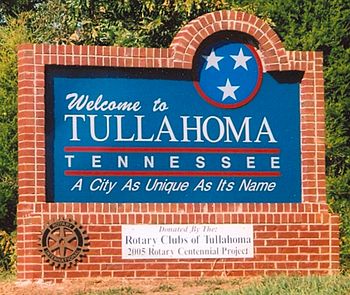Jamie McGee, jmcgee@tennessean.com
NORMANDY, Tenn. – It’s usually between the 10th and the 15th day of the month when Clifton and Joanna Miller’s satellite Internet account hits its data cap. Clifton, a lawyer, and Joanna, a sixth-grade math teacher, are unable to work from home. Their 16-year-old daughter, who depends on access for homework, takes a laptop to her grandmother’s house nearby to complete her assignments until a new month begins.
The Millers’ house is less than a mile from Tullahoma‘s city limit, but under state law, the Tullahoma Utilities Board cannot extend its high-speed fiber Internet network outside its electric service footprint. They would settle for basic broadband from other providers, but those companies — AT&T and Charter Communications — don’t reach his neighborhood.
“Having Internet connection is a crucial part of daily life,” Clifton Miller said. “If (private-sector companies) are not going to provide us with the utility, then someone should be allowed to give it to us.”
The same scenario is playing out throughout the state as demand increases for reliable Internet access. Tullahoma is among several Tennessee cities — Chattanooga, Clarksville, Jackson, Bristol, Morristown, Pulaski and Columbia — that offer broadband access to residents and businesses, often at cheaper rates and faster speeds than the private-sector providers, and unlike satellite, they don’t include data caps. Those in neighboring communities want the option of fiber access or, in many cases, just any kind of broadband access to fill in the gaps left by the private sector.








